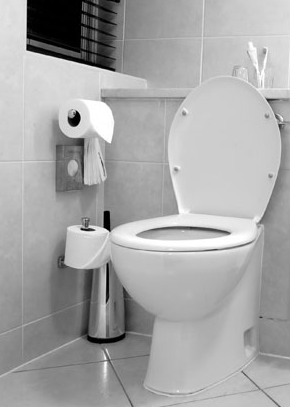Occurrence of protein in urine is medically referred to as proteinuria. Presence of trace levels of protein in urine is normal. However, excessive amounts of protein in urine is often indicative of serious underlying disorders. Hence, people with persistent cases of protein in urine, whether in trace amounts or excessive levels, need to consult a doctor for diagnosis and treatment if required.
Waste matter from the blood is filtered out of the body by the kidneys. Excess protein in the body is also removed along with urine. The molecules of protein are big in size and hence cannot pass via the filter system or glomeruli of the kidneys. Such protein is then eliminated along with urine.Albumin and globulin are the two types of protein that may occur in urine. Inability of the body to eliminate the larger protein molecules, due to varied causes like underlying conditions, etc., can lead to accumulation of protein in urine, which can lead to increased protein presence in urine.
Presence of trace protein in urine is usually harmless and does not require medical treatment. However, excessive levels of protein in urine needs to be checked and treated by a doctor.
Causes
Low levels or trace protein in urine is considered normal, particularly in younger individuals.Even high levels of protein in urine for short term is regarded as normal; it is usually detected after some vigorous physical activity, or exercising, or during an illness. Prolonged detection of elevated levels of protein via a urinalysis is however abnormal as it can be a symptom of major disorders like chronic kidney diseases, glomeruli inflammation or damage, or kidney failure.
Some conditions that can cause trace protein in urine or a temporary rise in protein levels in urine, without any relation to kidney problems, are as follows:
- Emotional stress
- Exposure to cold weather
- Fever
- Vigorous exercising or strenuous physical activities
- Exposure to heat
Conditions which may cause low to high levels of protein in urine are mentioned below. Patients may also experience additional symptoms like foamy or frothy urine, brownish yellow or dark yellow urine, and urine with a distinct odor.
- Urinary tract infections, rheumatoid arthritis, cardiac diseases, and other general health ailments that also adversely affect the kidneys can result in trace protein in urine or proteinuria.
- Infection of the ureters or the renal pathways with conditions like cystitis or pyelonephritis.
- Glomerulonephritis, i.e., inflammation of the glomeruli of the kidneys
- Kidney failure; in this, patients may suffer from symptoms like fatigue, facial swelling, and swelling of the upper and lower limbs.
Abnormal or trace protein in urine during pregnancy can occur due to the following conditions:
- If proteinuria during pregnancy is accompanied by abnormally high blood pressure, then it may be a sign of a serious condition called preeclampsia. Affected women may elicit symptoms like breathlessness, intermittent urination, blurred vision, pain in abdomen, chronic headaches, nausea, and fatigue. Treatment of the condition is dependent on the term or trimester of pregnancy.
- Gestational diabetes can also increase the levels of protein in urine. Hence, pregnant women should undergo regular urine tests to check for blood glucose levels as well as other ailments that can harm the mother or the unborn child.
Some conditions that are associated with underling kidney diseases and which cause proteinuria are listed below:
- Use of certain medications
- Amyloidosis, i.e., abnormal protein buildup in organs
- Diabetic hypoglycemia
- Cardiac disease or heart failure
- Goodpasture’s syndrome, a condition that affects the kidneys and lungs
- Hypertension
- Berger’s disease/IgA nephropathy, i.e., antibody immunoglobulin A accumulation which causes kidney inflammation
- Hodgkin’s disease/Hodgkin’s lymphoma
- Leukemia
- Malaria
- Lupus
- Multiple myeloma
- Pericarditis, i.e., inflammation of the pericardial sac enclosing the heart
- Sarcoidosis, i.e., growth of inflammatory cells clusters in the organs
- Orthostatic proteinuria
- Rheumatoid arthritis
- Sickle cell anemia

Treatment of trace protein in urine
- Medical treatment for proteinuria is not needed, especially if trace levels of protein are found in urine.In most cases, changes in the diet to restrict the intake of salt and protein-rich foods can help resolve the issue.
- Treatment of protein in urine is dependent on the underlying causative condition, as proteinuria is not a condition in itself. Thus, if it is caused due to some kind of kidney problem, then it is treated as per standard medical procedures. For example,
- Kidney infection is treated with antibiotics and lifestyle changes. It is important to treat kidney diseases on time as doing so can help prevent kidney damage or even kidney failure.
- Trace protein in urine which occurs as a symptom of diabetes is treated via drugs that help control the blood sugar levels and the blood pressure. Glucose levels can be managed with medications like water pills or diuretics and/or ACE inhibitors. Adherence to a specific diet, exercising, and lifestyle changes are also recommended by doctors.

I’m afraid coz I’m pregnant and I have protein trace in my urine…im 30weeks pregnant